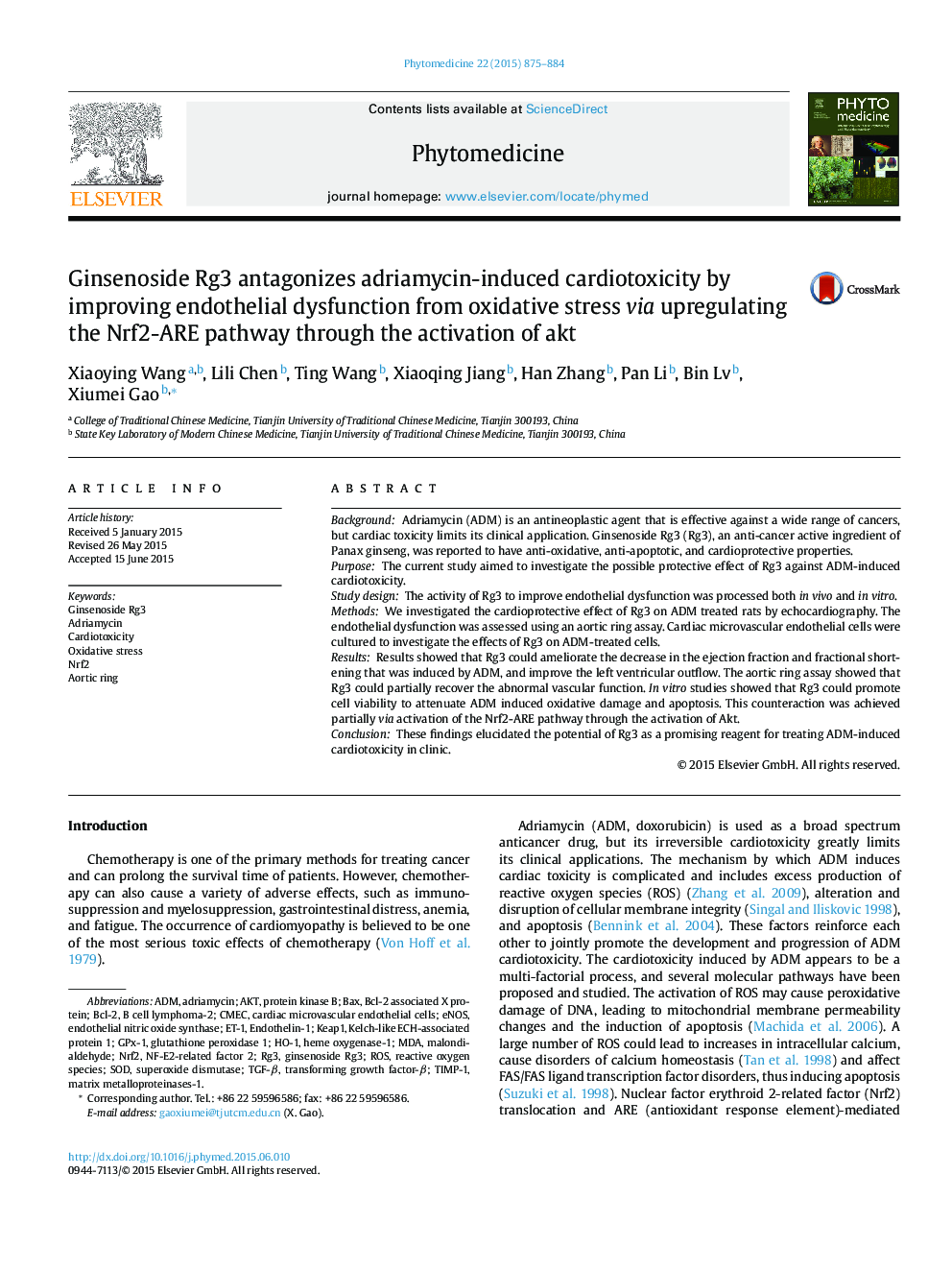| Article ID | Journal | Published Year | Pages | File Type |
|---|---|---|---|---|
| 5816372 | Phytomedicine | 2015 | 10 Pages |
BackgroundAdriamycin (ADM) is an antineoplastic agent that is effective against a wide range of cancers, but cardiac toxicity limits its clinical application. Ginsenoside Rg3 (Rg3), an anti-cancer active ingredient of Panax ginseng, was reported to have anti-oxidative, anti-apoptotic, and cardioprotective properties.PurposeThe current study aimed to investigate the possible protective effect of Rg3 against ADM-induced cardiotoxicity.Study designThe activity of Rg3 to improve endothelial dysfunction was processed both in vivo and in vitro.MethodsWe investigated the cardioprotective effect of Rg3 on ADM treated rats by echocardiography. The endothelial dysfunction was assessed using an aortic ring assay. Cardiac microvascular endothelial cells were cultured to investigate the effects of Rg3 on ADM-treated cells.ResultsResults showed that Rg3 could ameliorate the decrease in the ejection fraction and fractional shortening that was induced by ADM, and improve the left ventricular outflow. The aortic ring assay showed that Rg3 could partially recover the abnormal vascular function. In vitro studies showed that Rg3 could promote cell viability to attenuate ADM induced oxidative damage and apoptosis. This counteraction was achieved partially via activation of the Nrf2-ARE pathway through the activation of Akt.ConclusionThese findings elucidated the potential of Rg3 as a promising reagent for treating ADM-induced cardiotoxicity in clinic.
Graphical abstractDownload high-res image (308KB)Download full-size image
